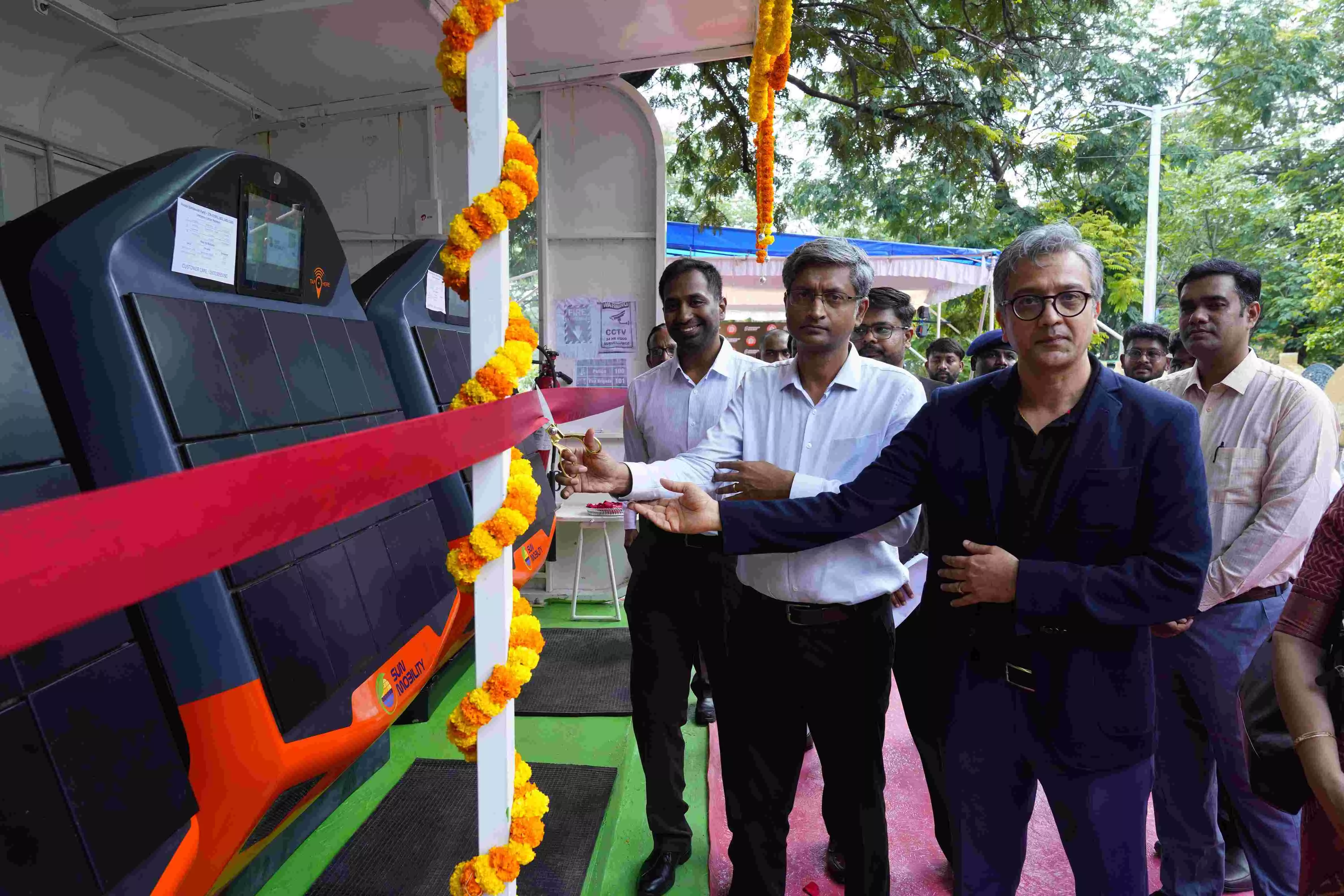Railways to roll out battery swapping stations across Hyderabad, Secunderabad
The company is currently on a mission to deploy over 10,000 battery swap stations across 40+ Indian cities
By Newsmeter Network
Hyderabad: Indian Railways has partnered with Indofast Energy to roll out a network of battery swapping stations across the Hyderabad and Secunderabad railway divisions.
The initiative is part of a broader push to promote clean energy and build sustainable transport solutions within public infrastructure.
80 Battery Swap Stations Already Operational
Under the collaboration, 80 battery swapping stations have already been powered and are operational across 25 railway stations. This includes 56 stations under the Secunderabad division and 24 under the Hyderabad division. An additional 40 swap stations are planned to be commissioned over the next three months.
These stations are strategically located to facilitate convenient access for electric vehicle (EV) users, including commuters, delivery personnel, and ride-sharing drivers, particularly those using electric two- and three-wheelers.
Public-Private Collaboration for Clean Mobility
The initiative is spearheaded by South Central Railway, with plans to expand to other divisions shortly. The partnership highlights how public-private collaborations can accelerate India’s transition to sustainable transportation.
R Gopalakrishnan, Divisional Railway Manager, South Central Railway, said:
“Indian Railways is committed to driving sustainable innovation across our infrastructure and operations. This first-of-its-kind initiative with South Central Railway, in partnership with Indofast Energy, marks a significant step towards building cleaner and more efficient transit ecosystems. The deployment of battery swapping stations within our premises not only benefits passengers through faster, cleaner last-mile connectivity but also serves the public by reducing emissions and congestion around station areas. This effort is closely aligned with the Railway Board’s policy guidelines on promoting e-mobility at railway stations, showcasing how public-private collaboration can accelerate green mobility across the country.”
Indofast’s Expansion Plans
Indofast Energy, a 50:50 joint venture between IndianOil Corporation Limited and SUN Mobility, is India’s leading battery-swapping solutions provider. It operates on a Battery-as-a-Service (BaaS) model, offering quick and cost-effective energy access for electric vehicles.
Anant Badjatya, CEO of Indofast Energy, shared insights on the partnership:
“Our operational stations in Hyderabad are already proving to be a lifeline for enhancing last-mile connectivity and empowering delivery services. The strong demand we’re witnessing underscores the urgent need for accessible and sustainable mobility solutions in our urban centers. We are immensely proud to partner with Indian Railways on this transformative journey and are excited to continue expanding this collaboration to build a greener, more efficient tomorrow, one swift swap at a time.”
The company is currently on a mission to deploy over 10,000 battery swap stations across 40+ Indian cities over the next three years, aiming to support more than 1 million EV users.
Boosting EV Infrastructure and Reducing Range Anxiety
By eliminating range anxiety and reducing EV charging wait times, the swap stations offer significant advantages to urban EV users. The hubs are integrated into railway station premises, offering fast, affordable, and reliable battery swaps, seamlessly blending with daily travel routines.
The deployment also contributes to reducing emissions and easing traffic congestion near railway stations, aligning with the Government of India’s clean energy objectives and the Railway Board’s e-mobility guidelines.
This partnership marks a crucial step towards a scalable, clean, and connected future, one where public transport hubs actively support the country’s transition to electric mobility.